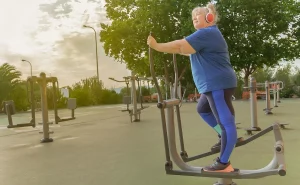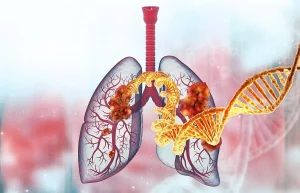The U.S. Food and Drug Administration said Wednesday that it will add a warning to the Pfizer and Moderna coronavirus vaccines about mild, rare cases of heart inflammation seen in some teens and young adults following vaccination.
The news came after a meeting of an advisory panel to the U.S. Centers of Disease Control and Prevention, where experts said the data suggests a “likely association” between the mRNA vaccines and rare cases of myocarditis/pericarditis — an inflammation of the heart muscle or surrounding membrane.
The second dose of the Pfizer vaccine was linked to about twice as many cases as the second dose of the vaccine made by Moderna, The New York Times reported. And more than half of the heart problems occurred in people aged 12 to 24, even though that age group accounted for only 9% of the millions of doses given to Americans.
Despite the warning, top U.S. government health officials, medical organizations, laboratories, hospital associations and others released a joint statement on Wednesday stressing the overriding benefit of the vaccines.
“The facts are clear: this is an extremely rare side effect, and only an exceedingly small number of people will experience it after vaccination,” the statement said. “Importantly, for the young people who do, most cases are mild, and individuals recover often on their own or with minimal treatment.”
The statement also noted that “myocarditis and pericarditis are much more common if you get COVID-19, and the risks to the heart from COVID-19 infection can be more severe.”
The statement urged all Americans 12 and older to get vaccinated.
“We strongly encourage everyone age 12 and older who are eligible to receive the vaccine under Emergency Use Authorization to get vaccinated,” the groups said. “Especially with the troubling Delta variant increasingly circulating, and more readily impacting younger people, the risks of being unvaccinated are far greater than any rare side effects from the vaccines. If you get COVID-19, you could get severely ill and be hospitalized or even die. Even if your infection is mild, you or your child could face long-term symptoms following COVID-19 infection such as neurological problems or diminished lung function.”
The heart problem appears to be most common in young men after they receive the second of two doses, but it is still rare: There have been 323 confirmed reports of the inflammation in people younger than 30, and the vast majority recovered from their symptoms, the Associated Press reported.
That risk “seems to me, and to many others, to be much lower than the risk of COVID,” Dr. Brian Feingold, a University of Pittsburgh heart specialist who is not a member of the panel, told the AP.
There have been nearly 2,800 COVID-19 deaths among adolescents and young adults, and more than 4,000 youths have suffered a dangerous condition called MIS-C that appears to be linked to the coronavirus.
The expert panel did not vote to change its recommendation to CDC that Americans as young as 12 get the shots. CDC officials said Wednesday that they plan to update their guidance to say that anyone who suffers heart inflammation after one dose of the vaccine can defer a second shot, the AP reported.
One of the first Americans diagnosed with vaccine-linked heart inflammation was Sean Morrison, a scientist in Dallas. Three days after his second dose, he developed intense pain in his chest that he said felt like a heart attack, the AP reported. He was hospitalized for four days as doctors investigated. They did not see any lingering effects, but they advised him to avoid exercise so his heart could recover.
Morrison, a stem cell biologist at the University of Texas Southwestern Medical Center, praised the vaccines as a crucial weapon in the battle against a virus that has killed about 600,000 Americans. But he also called for more research into the side effect, the AP reported.
White House Says July 4 Vaccination Goal Won’t Be Met
As vaccination rates among young Americans lag, the White House acknowledged on Tuesday that it will miss two key benchmarks in its nationwide campaign to stop the spread of coronavirus.
The first missed goal will be vaccinating 70% of all American adults with at least one shot by July 4, but officials stressed that threshold has been reached for those aged 30 and older and it should be met by July 4 for those aged 27 or older, the AP reported.
A second goal — fully vaccinating 165 million adult Americans by July 4 — will also be missed. White House COVID-19 Coordinator Jeff Zients projected it will take several more weeks to hit that number, the AP reported. As of Monday, 150 million Americans were fully vaccinated.
Administration officials said they were doubling down on reaching Americans between the ages of 18 and 26, who have proven to be the least likely to get a vaccine once they were eligible, the AP reported.
“I give credit to the Biden administration for putting in place a mass vaccination program for adults that did not exist,” Dr. Paul Offit, director of the Vaccine Education Center at Children’s Hospital of Philadelphia, told the Times. “But now we’ve hit a wall.”
The nationwide rate of new vaccinations has plummeted over the past month even as shots have become more available, with fewer than 300,000 Americans now getting their first dose per day, on average. At that pace, the country will not meet Biden’s 70% goal until late July at the earliest, the AP reported.
Officials are particularly worried about regional variations in vaccination rates.
More than 16 states and the District of Columbia have vaccinated 70% of their adult population. But others — particularly in the South and Midwest — are falling behind, with four not having yet reached 50% vaccination rates, the AP reported.
Those numbers are particularly troubling because of the rapid spread of the more contagious delta variant, first spotted in India.
In just two weeks, that variant has come to represent more than 20% of coronavirus infections in the United States, the U.S. Centers for Disease Control and Prevention reported Tuesday. That’s double what it was when the CDC last reported on the variant’s prevalence.
“The delta variant is currently the greatest threat in the U.S. to our attempt to eliminate COVID-19,” Dr. Anthony Fauci said at the White House briefing on the virus. “Good news: Our vaccines are effective against the delta variant. We have the tools. So let’s use them, and crush the outbreak.”
Zients said the rise of the delta variant should motivate younger Americans to get vaccinated.
“The reality is many younger Americans have felt like COVID-19 is not something that impacts them, and they’ve been less eager to get the shot,” Zients said. “However, with the delta variant now spreading across the country, and infecting younger people worldwide, it’s more important than ever that they get vaccinated.”
More information
The U.S. Centers for Disease Control and Prevention has more on COVID-19 vaccinations.
SOURCE: Associated Press; The New York Times
Source: HealthDay
Copyright © 2025 HealthDay. All rights reserved.

















